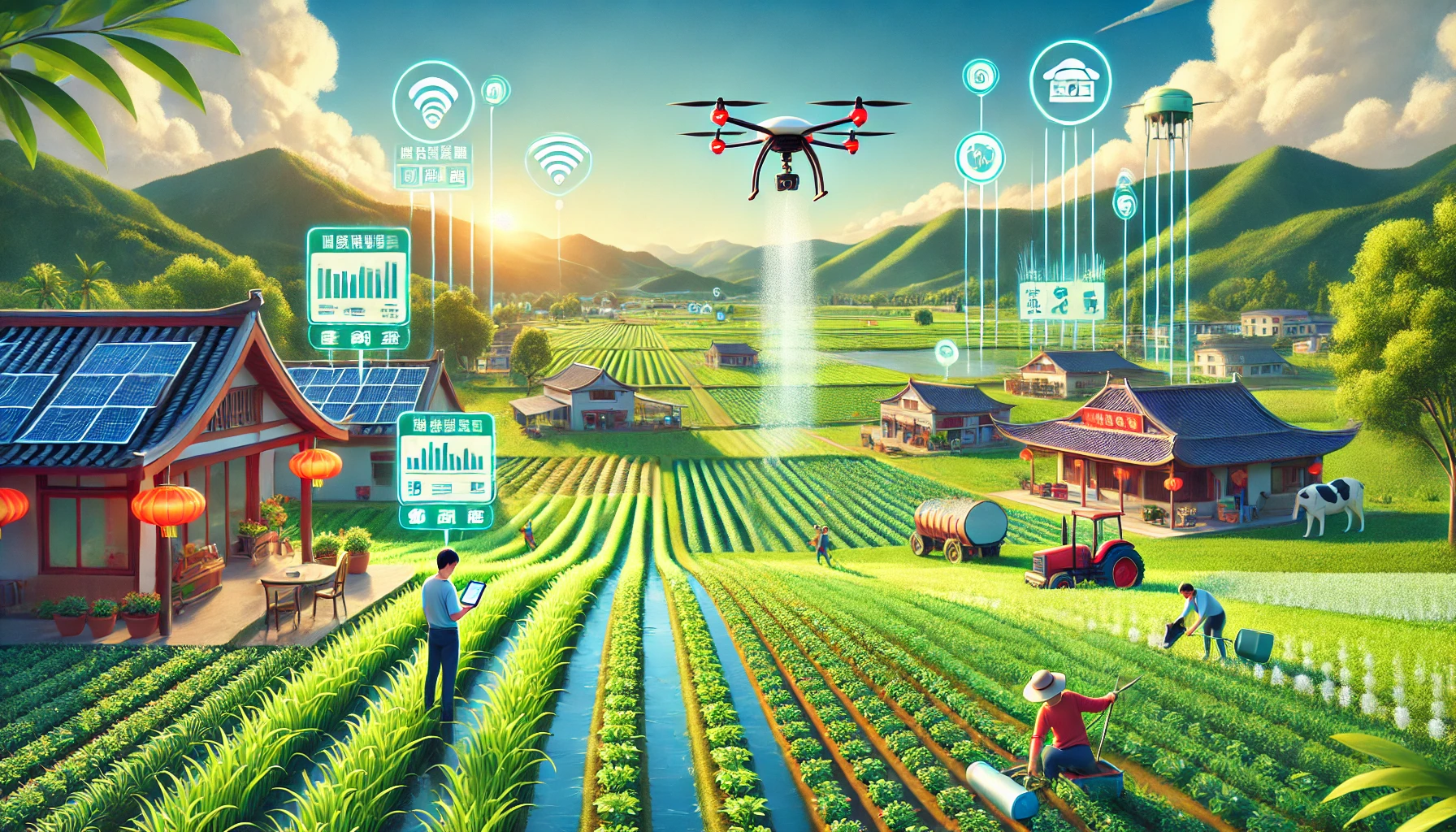Empowering Farmers: The Role of Digital Technology in Ecological Agriculture
A study by Nanjing Forestry University shows that participation in the digital economy significantly boosts the adoption of ecological agricultural technologies among Chinese farmers, enhancing sustainable farming practices. Digital tools in production, sales, and finance are key drivers of this transformation.

The integration of digital technology into agriculture, as explored by researchers from the College of Economics and Management at Nanjing Forestry University, is proving to be a transformative force in the adoption of ecological agricultural technologies (EATs). This comprehensive study analyzed data from 2,825 grain farmers in China and reveals that farmers who engage with digital tools and platforms are significantly more likely to adopt sustainable farming practices that are crucial for ensuring food security and protecting the environment. The study utilized advanced econometric models, including the treatment effect model and the mediating effect model, to dissect how different aspects of the digital economy namely digital production, digital sales, and digital finance contribute to the uptake of EATs among farmers.
Precision Agriculture: Optimizing Resources with Digital Production
The findings highlight that participation in the digital economy has a robust and positive effect on the adoption of EATs. Farmers who are involved in digital production use advanced technologies such as drones, the Internet of Things (IoT), and big data to optimize their agricultural practices. These technologies allow for precision in applying fertilizers and pesticides, thus reducing the environmental impact of farming. Digital sales platforms, particularly e-commerce, provide farmers with access to broader markets, enabling them to sell their products more efficiently and at better prices. This market access reduces information asymmetry and enhances the profitability of ecological farming practices, making them more appealing to farmers who might otherwise be deterred by the higher costs associated with sustainable agriculture.
Digital Sales: Boosting Farmer Incomes and EAT Adoption
The study emphasizes that while all three dimensions of digital participation positively influence the adoption of EATs, digital sales have the most substantial impact. This is likely because digital sales directly affect farmers' incomes by providing a platform to reach more consumers, thereby increasing demand for eco-friendly products. As consumers become more health-conscious and demand for green products rises, farmers are increasingly motivated to adopt practices that align with these market preferences. On the other hand, the study found that digital production, while beneficial, has a weaker impact compared to digital sales. This suggests that the adoption of high-tech farming methods, such as the use of drones and AI, is still in its early stages among China's small-scale farmers, who often lack the resources and knowledge to fully implement these technologies.
Overcoming Financial Barriers in Sustainable Agriculture
Digital finance emerged as another critical factor in promoting the adoption of EATs. The study found that access to digital financial services, such as online payments and digital credit, plays a significant role in enabling farmers to overcome the financial barriers associated with adopting new technologies. These financial tools lower the cost of transactions and broaden access to credit, particularly for farmers in remote areas who may not have easy access to traditional banking services. By reducing financial constraints, digital finance makes it easier for farmers to invest in the necessary equipment and inputs for sustainable farming, thereby increasing the likelihood of adopting EATs.
Digital Literacy and Scale: Key Drivers of Adoption
The research also delved into the mechanisms through which participation in the digital economy influences EAT adoption. It found that increased demand for agricultural machinery services, improved availability of information, and enhanced food safety cognition are key channels through which digital participation promotes sustainable practices. Interestingly, the study also revealed significant heterogeneity in the impact of digital participation on EAT adoption, depending on the farmers' digital literacy and the scale of their operations. Farmers with higher digital literacy and larger land holdings were more likely to benefit from participation in the digital economy. This suggests that digital literacy is a crucial skill in the modern agricultural landscape, where the ability to access and utilize digital tools can significantly enhance a farmer’s capacity to adopt sustainable practices. Similarly, larger-scale farmers, who are better positioned to leverage economies of scale, are more inclined to adopt EATs when they participate in the digital economy, compared to small-scale farmers who may face more significant barriers.
The Future of Sustainable Agriculture Lies in Digital Participation
Overall, the study provides compelling evidence that the digital economy is a powerful enabler of sustainable agriculture, particularly through its ability to enhance access to information, financial resources, and markets. As digital infrastructure continues to improve and digital literacy becomes more widespread, the potential for the digital economy to drive the adoption of EATs and thereby contribute to sustainable agricultural development will only increase. This research offers valuable insights not only for policymakers in China but also for other countries seeking to leverage digital technology in their efforts to promote sustainable farming practices.
- FIRST PUBLISHED IN:
- Devdiscourse
ALSO READ
Silent Threats: China's Covert Military Capabilities Embedded in Merchant Ships
Climate Crisis: Pacific Islands Face Existential Threats from Rising Seas, Ocean Warming, and Acidification
Foreign Cyber Threats and the 2016 US Election: A Closer Look
Government Tightens Security for RSS Chief Mohan Bhagwat Amid Heightened Threats
Tragic Teen Suicide Underlines Harassment and Threats in Nashik










